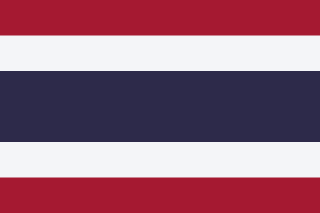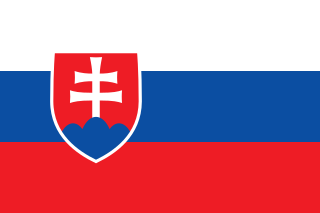
The Dwarf Athletic Association of America (DAAA) is an American athletic organization that sponsors and organizes athletic events for people with dwarfism.

The Dwarf Athletic Association of America (DAAA) is an American athletic organization that sponsors and organizes athletic events for people with dwarfism.
Founded in 1985, [1] the DAAA's purpose is to develop, promote, and provide little people athletes with organized and quality amateur athletics in a supportive environment. DAAA holds the idea that there is a lack of sports opportunity for little people in America and they look to fill the void and provide an environment that rewards dwarf athletes by taking their potential seriously and giving them a realistic opportunity to succeed through hard work and dedication. The DAAA also believes that "the dream of honoring America in international competition should be as real for a dwarf athlete as it is for any other in the country." [2]
According to its website, [2] the DAAA's mission is: "To encourage people with dwarfism to participate in sports regardless of their level of skills." It is also to help dwarfs realize their true potential in life.
The DAAA organizes and promotes dwarf athletics in a variety of sports for a variety of ages. They also sponsor clinics and development events around the United States.
The DAAA has athletes that compete in the following sports:
Due to the medical nature of dwarfism, the DAAA has certain requirements that must be met for eligibility. [3] These requirements include (but are not limited to):
In addition to the development of youth and adult dwarf athletes, the DAAA also organizes a number of local, regional, and national events to promote healthy competition among other little people.
The National Dwarf Games is a yearly amateur competition organized by the DAAA (and local organizations) and only open to little people. Athletes are divided on the basis of age, gender, and functional ability classifications. [4] There are also events for ages 8–15, but these are meant to emphasize the achievement of personal best. Also, youth seven and under can participate in special (non-competitive) programs where everybody wins. [4] In 2007, the National Dwarf Games were held in Seattle, Washington, [5] in conjunction with the 2007 Little People of America conference.
The World Dwarf Games are an international competition (similar to the Paralympics) that allows little people to compete at an international level. The games are held every four years at locations around the world. Athletes that have shown outstanding athleticism during the National Dwarf Games are chosen to participate in the World Dwarf Games. [6]
The World Dwarf Games were first held in Chicago in 1993 and were hosted by the DCCC. [7] During this inaugural games, the International Dwarf Athletic Federation (IDAF) was conceived. [8] Since then, the World Dwarf Games have been held every four years at cities around the world.
| Edition | Year | City | Host | Countries | Athletes |
|---|---|---|---|---|---|
| 1 | 1993 | Chicago | 10 | 165 | |
| 2 | 1997 | Peterborough | 6 | 83 | |
| 3 | 2001 | Toronto | 8 | 250 | |
| 4 | 2005 | Paris | 14 | 136 | |
| 5 | 2009 | Belfast [9] | 12 | 250 | |
| 6 | 2013 | East Lansing | 16 | 395 | |
| 7 | 2017 | Guelph | |||
| 8 | 2023 | Cologne [10] | |||
| 9 | 2027 |
The DAAA maintains affiliations and relationships with the following organizations: [12]
The DAAA has been featured in a number of episodes on the American television series Little People, Big World on TLC. The show, centered around the dwarf members of the Roloff family, has included a number of episodes where members of the family have participated in events sponsored by the DAAA. Zach Roloff competes in soccer regularly, and in 2006, Amy competed in Bocce.

Boccia is a precision ball sport, similar to bocce, and related to bowls and pétanque. The name "boccia" is derived from the Latin word for "boss" – bottia. The sport is contested at local, national and international levels, by athletes with severe physical disabilities. It was originally designed to be played by people with cerebral palsy but now includes athletes with other severe disabilities affecting motor skills. In 1984, it became a Paralympic sport and as of 2020, 75 boccia national organizations have joined one or more of the international organizations. Boccia is governed by the Boccia International Sports Federation (BISFed) and is one of only two Paralympic sports that have no counterpart in the Olympic program.
The National Paralympic Games are high-level multi-sport events held at the national level by the International Paralympic Committee and national Paralympic Committees in non-Olympic years. The events provide competitions for disabled athletes.

The Paralympic sports comprise all the sports contested in the Summer and Winter Paralympic Games. As of 2020, the Summer Paralympics included 22 sports and 539 medal events, and the Winter Paralympics include 5 sports and disciplines and about 80 events. The number and kinds of events may change from one Paralympic Games to another.

Para-athletics is the sport of athletics practised by people with a disability as a parasport. The athletics events within the parasport are mostly the same as those available to able-bodied people, with two major exceptions in wheelchair racing and the club throw, which are specific to the division. The sport is known by various names, including disability athletics, disabled track and field and Paralympic athletics. Top-level competitors may be called elite athletes with disability.

The Summer Paralympics, also known as the Games of the Paralympiad, are an international multi-sport event where athletes with physical disabilities compete. This includes athletes with mobility disabilities, amputations, blindness, and cerebral palsy. The Paralympic Games are held every four years, organized by the International Paralympic Committee. Medals are awarded in every event, with gold medals for first place, silver for second and bronze for third, a tradition that the Olympic Games started in 1904.

Boccia at the 2012 Summer Paralympics was held in the ExCeL from 2 September to 8 September, with a maximum of 104 athletes competing in seven events. There were four individual events, two pair events, and one team event.
BC1 is a Paralympic boccia classification. The class is open to people with several different types of disabilities, including cerebral palsy. BC1 players have events open to them in boccia on the Paralympic Games program.
BC2 is a Paralympic boccia classification. The class is open to people with several different types of disabilities, including cerebral palsy. BC2 players have events open to them in boccia on the Paralympic Games program.
BC3 is a Paralympic boccia classification. The class is open to people with several different types of disabilities, including cerebral palsy. BC3 players have events open to them in boccia on the Paralympic Games program.
BC4 is a Paralympic boccia classification.
Para-athletics classification is a system to determine which athletes with disabilities may compete against each other in para-athletics events. Classification is intended to group together athletes with similar levels of physical ability to allow fair competition. Classification was created and is managed by the International Paralympic Committee (IPC), which is regularly published via its IPC Athletics Classification Handbook. People with physical, vision and intellectual disabilities are eligible to compete in this sport at the Summer Paralympics. The classification for this sport was created during the 1940s and for much of its early history was a medical condition based classification system. The classification system has subsequently become a functional mobility based one, and is moving towards an evidence-based classification system.
Boccia classification is the classification system governing boccia, a sport designed specifically for people with disabilities. Classification is handled by Cerebral Palsy International Sports and Recreation Association. There are four classifications for this sport. All four classes are eligible to compete at the Paralympic Games.

In 1992, Spain had competitors in archery, wheelchair basketball, swimming, weightlifting, shooting, boccia, cycling, fencing, judo, tennis, 7-per-side football, table tennis and athletics.
José Manuel Rodríguez Vázquez is a Spanish boccia player, who has represented the country internationally at the Paralympic Games. Vazquez won a gold medal in the 2004 Summer Paralympics in Athens.

Thailand competed at the 2016 Summer Paralympics in Rio de Janeiro, Brazil, from 7 September to 18 September 2016.

Slovakia competed at the 2016 Summer Paralympics in Rio de Janeiro, Brazil, from 7 to 18 September 2016.

Belgium competed at the 2016 Summer Paralympics in Rio de Janeiro, Brazil, from 7 to 18 September 2016.

Singapore competed at the 2016 Summer Paralympics in Rio de Janeiro, Brazil, from 7 September to 18 September 2016.
Les Autres sport classification is system used in disability sport for people with locomotor disabilities not included in other classification systems for people with physical disabilities. The purpose of this system is to facilitate fair competition between people with different types of disabilities, and to give credibility to disability sports. It was designed and managed by International Sports Organization for the Disabled (ISOD) until the 2005 merger with IWAS, when management switched to that organization. Classification is handled on the national level by relevant sport organizations.

The World Dwarf Games (WDG) are a multi-sport event for athletes of short stature. The WDG have been held every four years since 1993 and are the world's largest sporting event exclusively for athletes with skeletal dysplasia. Many Paralympians with growth disorders start their sports careers here.